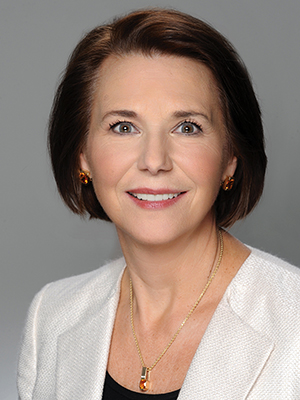 Linda P. Erickson
Linda P. EricksonLinda P. Erickson, CFP®, is the president of Erickson Advisors and a registered principal offering securities through Cetera Advisor Networks, LLC, 336-274-9403 lindae@ericksonadvisors.net.
I was recently at a gathering of friends and the discussion turned to the new tax law. Several of them admitted they may not be able to deduct annual contributions to their favorite charities due to these recent changes. While I don’t know if this fact will alter their commitment to support their church, school or important cause, I know the realization of the loss of deductibility for charitable donations came as a shock to them, and may also cause you to sit up and take notice.
For many of you, I have a potential solution to your tax dilemma – you can continue to support your favorite charities with the Required Minimum Distribution (RMD) from your IRA or Profit Sharing Plan and keep your full deduction. It’s called a Qualified Charitable Distribution (QCD).
This option is not for everyone. You must be at least 70 ½ when you become “of age” in the same tax year as the one in which you make the donation, so you younger folks will have to wait. And, as with so many things that sound so interesting, there are several rules you must follow.
- Contact your charity or financial advisor and let them know you want to make a Qualified Charitable Distribution. The financial institution will have special forms you must use.
- Be prepared to send the donation to the qualified charity directly from your IRA or retirement plan account. You can distribute as much as $100,000 and none of the distribution will increase your income for Social Security taxation or Medicare surcharge purposes. You cannot, however, take the withdrawal into your bank account and then send it on to your charity. This point is critical to maintain the tax treatment of the distribution. Any money taken into your personal account will be considered fully taxable. Even if you subsequently donate some or all of it to your charity, those donations may or may not be deductible. The distribution received into your account will be fully recognized and will add to the income you report to see if or how much your Social Security income benefits are taxed.
- You may split your QDC among several charities, but each must be a Qualified Charity. Helping out a friend or a neighborhood group would likely not qualify. Check with each organization to verify that they are indeed a Qualified Charity.
As with most financial planning ideas that involve tax issues, it is very important to consult either your Certified Financial Planner® or your CPA to verify that you are eligible and that you follow the guidelines I’ve listed above.
For a comprehensive review of your personal situation, always consult with a legal tax advisor. Neither Cetera Advisor Networks LLC nor any of its representatives may give legal or tax advice.

